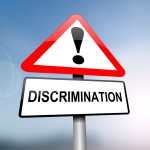
A new cross-sectional survey published in The Lancet has revealed some unsurprising but nonetheless sobering facts about how people with depression are stigmatised.
The research team, funded by money from the European Commission, interviewed 1,082 people with depression from 35 countries across the world. They used the discrimination and stigma scale (version 12; DISC-12) to measure discrimination and anticipated discrimination. They conducted a multivariable regression to analyse the data.
Here’s what they found:
- 79% of people with depression report having experienced some form of discrimination
- 34% of participants reported that they had been avoided or shunned by other people because of their mental health problems
- 71% said that they actively wished to conceal their depression from other people
- 37% of participants had been prevented from starting a close personal relationship because of anticipated discrimination
- 25% had not applied for work at some point because of anticipated discrimination
- However, the research found that actual events did not always confirm what people had expected from their anticipated discrimination:
- 47% of participants who had anticipated discrimination in finding or keeping a job did not actually experience discrimination
- 45% who anticipated discrimination in their personal relationships said that they did not actually experience discrimination
Professor Graham Thornicroft who led the research team said:
Our findings show that discrimination related to depression is widespread, and almost certainly acts as a barrier to an active social life and having a fair chance to get and keep a job for people with depression.
A great deal of the research in this area to date has focused on the attitudes of the general public to mental health and the stigma that these frequently cause. This new study is a welcome addition to our knowledge in the field and yet another reason to improve public education about depression and discrimination.
Link
Lasalvia, A. et al. Global pattern of experienced and anticipated discrimination reported by people with major depressive disorder: a cross-sectional survey. The Lancet 2012, Oct 18, doi: 10.1016/S0140-6736(12)61379-8

I have suffered from discrimination due to my depression, one of my former colleagues who is a former HV stated clearly that people with depression should not be teaching or working with people just imagine how i felt. Wish id concealed it a little more x
I think the key word in all this is ‘anticipated’. I know that in my years of depression I anticipated much more discrimination and negative reactions than I actually received. It kind of goes with the illness and so is important to consider, but perhaps what needs more consideration that other people’s reactions, is how can we help people with Depression to feel differently about themselves, and so then not anticipating the negative?